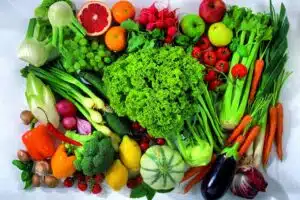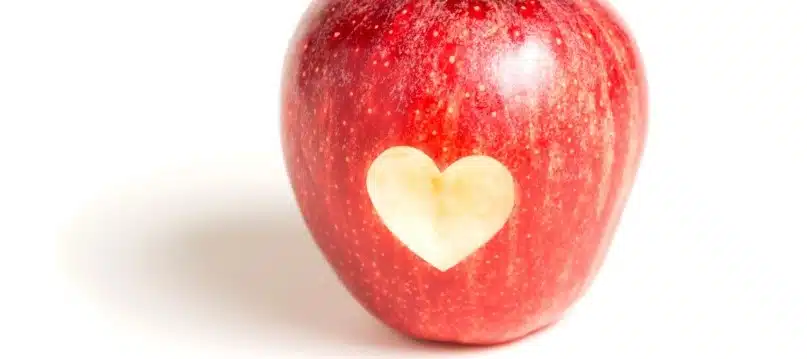Valentine’s Day 2023 is approaching, and love is in the air! The symbol for this emotionally influenced holiday is the heart, so it is only right that we discuss the variety of ways and foods that can keep our hearts healthy on this heart health month 2023.
The heart plays a large role in our circulatory system by pumping blood throughout the body. Many conditions can lead to heart diseases such as hypertension and high cholesterol.
Numerous risk factors contribute to these illnesses such as an unhealthy diet, physical inactivity, obesity, excessive alcohol intake, tobacco use, family history, age, sex, and race.
While some of these factors are out of our control, focusing on the other components like an unhealthy diet and physical inactivity can help reduce these risks. Let us reduce these risks this heart health month 2023!
Hypertension
Often referred to as ‘the silent killer’ or ‘high blood pressure’, happens when your systolic and diastolic numbers are at/above 130-139/80-89 according to the American Heart Association. It is extremely important to know your blood pressure numbers so always ask your doctor at each visit.
For those suffering from hypertension, it is advisable to consider purchasing your blood pressure monitor from your local pharmacy. Blood pressure is considered normal when the numbers are less than 120/80 respectively. Hypertension can occur when those numbers are left untreated. High blood pressure can cause damage to the blood vessels, the heart, and other internal organs.
High Cholesterol
Uncontrolled high cholesterol can result in strokes and heart attacks. The body needs this waxy substance to build cells, vitamins, minerals, and hormones. Cholesterol comes from the liver and our diet, specifically animal products.
There are two types: LDL (low-density lipoprotein) and HDL (high-density lipoprotein). LDL is considered bad cholesterol and HDL is considered good cholesterol.
LDL contributes to the fat buildup in your arteries, while HDL protects against strokes and heart attacks if they are at a normal level.
Triglycerides are also important as they are the most common type of fat in the body and store excess energy from your diet. High triglycerides along with high LDL numbers can increase the risks of heart disease. It is important to know these numbers via lab work so you can keep your LDL numbers low and HDL numbers high.
Role of food in lowering blood pressure and cholesterol
Lifestyle and dietary changes can help with reducing high blood pressure and high cholesterol risks. The DASH diet is often recommended for those who are looking to lower their blood pressure. DASH is an acronym for Dietary Approach to Stop Hypertension. Studies have shown that those following the DASH diet alone can reduce their systolic numbers by 6 to 11 mm Hg.
Not to be confused with popular trend diets, the DASH diet is about lifestyle changes highlighting fruits, vegetables, beans, nuts, seeds, whole grains, fish, poultry, low fat or fat-free dairy products, and reducing sodium intake to 2300mg per day.
These foods contain nutrients high in potassium, fiber, calcium, magnesium, and protein. Potassium plays a large role in managing blood pressure. Potassium-rich foods include potatoes, oranges, tomatoes, avocados, spinach, nuts, and bananas just to name a few.
The fiber in the diet has been shown to lower total cholesterol and LDL levels. Research has shown that most Americans do not consume the recommended amount of fiber which is twenty-five to thirty-eight grams per day.
Fiber is found in many plants such as fruits, vegetables, beans, lentils, whole grains, nuts, and seeds. On this heart health month 2023, let us increase fiber intake in our diet by eating the skin on fruits or vegetables such as the skin on apples and potatoes.
When selecting 100% whole wheat options this heart health month, ensure that the first ingredient on the nutrition label indicates ‘whole wheat’.
Other fiber-rich foods include pears with the skin, raspberries, avocados, almonds, black beans, popcorn, and barley. If your diet is not rich in fiber, start by gradually increasing fiber and drinking plenty of fluids to prevent constipation.
Carbohydrates such as fruits, vegetables, and whole grains in your regular diet can provide a variety of nutritional benefits such as vitamins, minerals, and antioxidants.
Other beneficial nutrients are healthy fats. Healthy fats play an important role in cholesterol and blood pressure management.
Studies show they provide essential fatty acids, reduce inflammation, increase HDL, and lower LDL when consumed in moderation. These foods include olive oil, avocados, nuts, hemp seeds, flax seeds, and fish.
Along with carbohydrates and fats, protein-rich foods should always be added to the diet to feel full longer, muscle repair, and lower cholesterol.
Protein is found in legumes, soy products, nuts, seeds, lean meats, poultry, eggs, and fish. When choosing poultry, opt for skinless, boneless, white meat over dark meat. These choices reduce your saturated fat intake.
Consuming a variety of food groups at each meal helps lower cholesterol and blood pressure. Avoid trendy diets which often encourage the elimination of essential food groups, specifically carbohydrates.
So, for this Valentine’s Day and heart health month 2023, if cooking your meal at home, choose a protein (lean meat or plant-based), grain (brown rice, quinoa), vegetable, and healthy fat (olive oil).
Eating out? No problem! View the menu ahead of time and choose those three food groups that are rich in healthy fats, fiber, protein, and potassium.
Most importantly, always know your numbers regarding blood pressure and cholesterol and be heart healthy.
For more information or individualized nutrition counseling, please seek a Registered Dietitian to help with preferences and dietary needs.
References
Know Your Risk for High Blood Pressure | cdc.gov
High Blood Pressure | American Heart Association
HDL (Good), LDL (Bad) Cholesterol and Triglycerides | American Heart Association
DASH Diet To Stop Hypertension – StatPearls – NCBI Bookshelf (nih.gov)
Breasts vs Thighs Which Is More Nutritious (eatright.org)
Dietary Fiber, Atherosclerosis, and Cardiovascular Disease (nih.gov)
DASH Eating Plan: Reducing Blood Pressure through Diet and Lifestyle (eatright.org)

Kirsten Kearse
Related Posts



Fatty Acids, Triacylglycerol, Cholesterol – The Wonders of Fats!

Boiled vs Scrambled, White vs Brown – The Truth About Eggs



